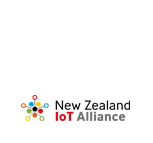The technological revolution continues to amaze. Whether trying ChatGPT for the first time, delving into the world of crypto currencies, or tracking your daily activities via a smart watch. Technology has become more accessible than it has ever been.
Location technology is no different. Free open source software and engaged communities provide a great place to start. If you need more capability, powerful commercial software can empower even the biggest enterprises. Spatial data, from comprehensive basemaps to high resolution Lidar data is often available under creative commons licences. Complex spatial analysis has been simplified and difficult to learn skills like cartography have been replaced with smart mapping features that can automatically create attractive maps.
As exciting as these advances are, it’s also hard not to feel a little threatened by them. Artificial intelligence will continue to grow in capability and technology will continue to evolve, perhaps challenging the function traditionally held by the role of the GIS Analyst for example.
Geospatial technology provides the greatest value when integrated with other systems. It needs to be part of a greater whole. This is one reason why LocationTech has recently joined with the IoT Alliance. Our industry needs to be sharing experience and expertise while also learning from others.
Over the coming months LocationTech will be working more closely with not just the IoT Alliance, but also the AI Forum, Digital Identity NZ, Insurtech and many other industries. We’ll be bringing their experience to you in the form of joint webinars and events. We hope to identify the new opportunities that arise from the technological revolution. So join us and be part of the future.
Chris Morris
Executive Council Member
LocationTech and IoT Alliance
Read more: Location technology needs to be part of a greater whole






